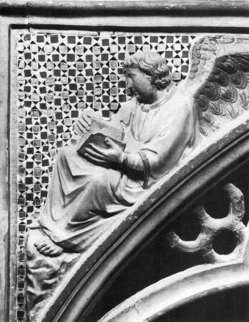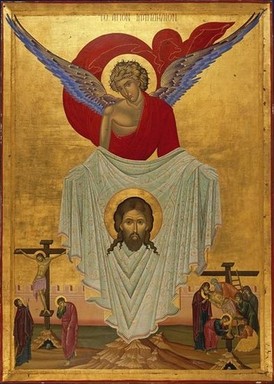For the most part, the time for priestly diaconal
ordinations have come and gone. Where I am for the summer, a newly ordained
priest is due to arrive in a few days. Having heard plenty of ordination
homilies over the years none are as insightful as Benedict XVI's especially when he proposes a plan to be spiritually fit. Of course, all what is said is not restricted to priests but applicable to the laity as well. All of us
reading this post are familiar with all the points made about developing a
prayer life and seeing them together constitutes a serious plan. Father Mark
draws our attention to one item that is near-and-dear to many of us: lectio divina.
I am re-posting a portion of Father Mark's recent May blog entry because I think it's
helpful.
What is Father Everypriest's daily Rule of Prayer according
to Pope Benedict XVI? Let's consider the elements of the Rule in the order in
which the Holy Father presents them.
1) Daily Holy Mass. Daily. Not 6 days week, not 5, or 4 days
a week, but daily. The liturgical cycle in its hourly, daily, weekly, and
yearly rhythms is given us precisely to facilitate our "abiding" in
Christ hour by hour, day by day, week by week, and year after year. Integral to
the liturgical cycle is daily Holy Mass. The Eucharistic Sacrifice sends the
divine lifeblood coursing through one's spiritual organism. Without daily Mass,
the priest will succumb to spiritual anemia.

2) The Liturgy of the Hours. The Hours give rhythm and grace
to daily life. They are a school of discipline (discipleship), a supernatural
system of irrigation channeling grace into every moment of the day, a
privileged way of offering thanks in communion with all who, "in heaven,
on earth, and under the earth," confess the Name of Jesus and bend the
knee before Him. A priest who loves the Divine Office will enjoy an interior
life that is sane, and sound, and wholly ecclesial. Fidelity to the Divine
Office refines the Gifts of the Holy Spirit, sharpens one's discernment, and imparts
to everything the priest does a certain Eucharistic and doxological quality.
3) Eucharistic Adoration. Are you surprised? Eucharistic
adoration has known a kind of springtime since The Year of the Eucharist
(2004-2005) that was also the year of the death of Pope John Paul II and of the
election of Pope Benedict XVI. Two Americans known for loving their brother
priests and ministering to them tirelessly -- Archbishop Fulton J. Sheen and
Father Gerald Fitzgerald of the Holy Spirit -- insisted on a daily hour before
the Blessed Sacrament as a sine qua non of priestly spirituality. The priest
who adores the Blessed Sacrament exposes his weaknesses and wounds to the
healing radiance of the Eucharistic Face of Jesus. Moreover, he abides before
the Eucharistic Face of Jesus as the representative of his people: of the sick,
the poor, the bereaved, and of those locked in spiritual combat. The priest who
looks to the Eucharistic Face of Jesus, and draws near to His Open Heart in the
Sacrament of the Altar, will, just as the psalm says, be radiant, and he will
not be put to shame.
4) Lectio Divina. Again -- a monastic thing? No, a Catholic
thing. The quality of a priest's preaching is directly proportionate to his
commitment to lectio divina. Neglect of lectio divina leads to mediocre
preaching. Opening the Scriptures is like opening the tabernacle: therein the
priest finds the "hidden manna" his soul craves. The four steps of lectio
divina can be accommodated to any length of time: 1) lectio, i.e. the Word
heard; 2) meditatio, i.e. the Word repeated; 3) oratio, i.e. the Word prayed;
4) contemplatio; i.e. the indwelling Word. Lectio divina cannot be occasional;
it is not a random pursuit. Learn to say, "I am not available." Get
over feeling guilty about taking time for God!
5) Holy Rosary. Yes, the daily Rosary. It's a spiritual
lifeline that has saved many a priest from spiritual shipwreck. The brilliant
and holy exegete and founder of the École biblique in Jerusalem, Father
Marie-Joseph Lagrange, was observed praying fifteen mysteries of the Rosary
each day, and asked, "Why, Father, do you, a great exegete, need to pray
the Rosary?" "Because, " he answered, "it decapitates
pride." I would add that not only does the Rosary decapitate pride; it
decapitates each of the seven capital sins: pride, greed, lust, anger,
gluttony, envy, and sloth. With the passing of the years I have come to
appreciate the profound wisdom of an old Dominican priest to whom I used to
make my confession years ago. Invariably, after confessing my miseries, Father
would ask, "Do you say the Rosary, son?" And invariably I would
reply, "Yes, Father." And then he would say, "Aye, then you'll
be alright." A priest who prays the Rosary daily will be alright and,
almost imperceptibly, will grow in purity and humility.

6) Meditation. Meditation can mean many things, even within
our Catholic tradition. It is integral to the prayerful celebration of Holy
Mass and the Hours. "it nourishes Eucharistic adoration. It is the second
"moment" of lectio divina. It is the soul of the Rosary. In my own
experience, meditation is related to "remembering the things the Lord has
done." Saint Gertrude the Great, a model of the mystical life grounded in
the liturgy, used to say, "A grace remembered is a grace renewed."
Understood in this sense, meditation, by recalling the mercies of the Lord in
the past, infuses the present with hope, and allows the priest to go forward
with a holy boldness.
Is it necessary to set a period of time apart for meditation
as such? That depends on whom you ask. The Carmelite, Jesuit and Sulpician
traditions would hold fast to some form of meditation as a daily exercise. The
monastic tradition has, on the whole, taken a more supple approach to
meditation. It is a daily practice, but one diffused in every form of prayer,
including the liturgy itself. One learns to pace one's prayer, to pause, to
breathe, to linger over a phrase, a word, or an image. Whether one espouses the
Ignatian way or the monastic approach, meditation is an integral to every priest's
daily Rule of Prayer.



